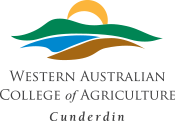Our students experience a combination of excellence in academic teaching and relevant practical and trade experience within the 4,023 hectare working farm environment. Graduates go on to gain apprenticeships in industry, and employment in agricultural industries, while others go on to further their studies at university and TAFE.
There are two pathways of study to choose from for Year 11 students – ATAR and General.
See below for the WACoA – Cunderdin Learning Pathways.
ATAR Courses
ATAR courses: for students who are aiming to enrol in university directly from school. These courses will be examined by the Authority and the results accepted by TISC for the purpose of university selection. It is recommended that students choosing this stream have achieved at an A or B level in Year 10 and achieved a Band 3 in each OLNA strand.
Students wishing to receive an ATAR are required to complete a minimum of four ATAR courses in Year 12. Each course has four units; each unit is usually completed in a semester. Units 1 and 2 (Year 11) are typically studied as a pair. Units 3 and 4 (Year 12) must be studied as a pair.
|
SUBJECT/CERTIFICATE |
YR 11 | YR 12 |
|
Units 1 & 2 |
Units 3 & 4 |
|
|
Units 1 & 2 |
Units 3 & 4 |
|
|
Units 1 & 2 |
Units 3 & 4 |
|
|
Units 1 & 2 |
Units 3 & 4 |
|
|
Wellbeing: A series of lessons providing information, support and external access avenues for physical and mental health and wellbeing (Year 12 only). |
||
|
Complete one or more certificates over 2 years to Certificate II and/or Certificate III level. |
||
|
Two courses to be undertaken to Certificate II level over 2 years in Automotives, Construction, Engineering & Furnishing. |
||
General Courses
General courses: for students who are aiming to enter further training such as apprenticeships, or the workforce directly from school. These courses will not be examined by the Authority.
Graduates in the General course often gain apprenticeships, traineeship, TAFE certificates in Agriculture or return to the family farm.
With access to well-equipped workshops designed to produce quality material, students learn solid industry standard practices in automotive mechanics, engineering, metalwork, woodwork and general construction.
|
SUBJECT/CERTIFICATE |
YR 11 |
YR 12 |
|
Units 1 & 2 |
Units 3 & 4 |
|
|
Units 1 & 2 |
Units 3 & 4 |
|
|
|
|
|
|
Units 1 & 2 |
Units 3 & 4 |
|
|
Units 1 & 2 |
Units 3 & 4 |
|
|
Wellbeing: A series of lessons providing information, support and external access avenues for physical and mental health and wellbeing. |
||
|
Complete one or more certificates over 2 years to Certificate II and/or Certificate III level. |
||
|
Two certificates from Automotives, Engineering, Furnishing and General Construction. |
||
|
A third D & T certificate to be undertaken or Physical Education Studies. |
||




